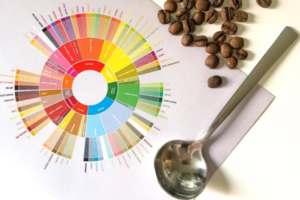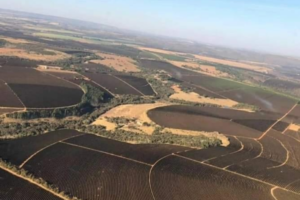Introduction:
Coffee, esteemed globally as a beloved beverage, owes much of its captivating diversity and unparalleled quality to the intricate realm of genetics. In recent years, propelled by relentless scientific exploration, the coffee industry has witnessed a profound transformation, with genetics emerging as a cornerstone in shaping its present trajectory and future course. This article embarks on an insightful journey to illuminate the pivotal role genetics plays in coffee production, traversing through the landscape of current advancements and illuminating the vistas of future prospects.
Understanding the Complexity of Coffee Genetics:
At the heart of every coffee bean lies a complex genetic code that dictates its flavor nuances, resilience against diseases, and adaptability to diverse environmental conditions. The rich genetic diversity inherent within coffee plants serves as the foundation upon which breeders and scientists meticulously craft superior cultivars, ensuring the sustainability and longevity of coffee cultivation worldwide.
Divergence between Genetic Modification and Traditional Breeding:
Within the realm of coffee genetics, two distinct approaches—traditional breeding and genetic modification—stand as pillars of innovation. While traditional breeding methods have historically driven genetic improvement, the advent of genetic modification offers unparalleled precision in sculpting desired traits, ranging from enhanced disease resistance to heightened flavor profiles. Both methodologies present promising avenues for addressing the pressing challenges confronting the coffee industry, including climate change-induced fluctuations and the proliferation of coffee pests and diseases.
Revolutionizing Coffee Genetics through Advanced Mapping Techniques:
In recent years, the convergence of cutting-edge genomic sequencing technologies and computational prowess has propelled the field of coffee genetics to unprecedented heights. Through meticulous genetic mapping, scientists can decipher the intricate genetic makeup of coffee plants with unparalleled precision, unraveling the mysteries enshrouding flavor development, yield optimization, and resilience enhancement. Armed with this invaluable genetic roadmap, breeders can navigate the intricate labyrinth of coffee genetics with finesse, steering the industry towards a future adorned with superior cultivars and sustainable farming practices.
Elevating Flavor Profiles through Genetic Insights:
One of the most tantalizing frontiers in coffee genetics lies in the realm of flavor modulation. By unraveling the intricate interplay of genes governing flavor compounds, scientists and breeders can orchestrate a symphony of taste sensations, ranging from fruity and floral to chocolatey and nutty. Harnessing the power of genetic insights, coffee aficionados can embark on a sensorial journey, savoring the nuances of meticulously crafted brews that reflect the essence of their genetic heritage.
Enhancing Yield and Resilience:
In the face of mounting environmental challenges and shifting agricultural landscapes, the imperative to enhance coffee yield and resilience has never been more pressing. Through targeted genetic research, breeders endeavor to identify and harness genes conferring resilience to pests, diseases, and adverse climatic conditions. By fortifying coffee plants with these invaluable genetic traits, farmers can bolster their defenses against environmental stressors while simultaneously bolstering yields and securing livelihoods.
In the ever-evolving landscape of coffee cultivation, the pursuit of higher yields and enhanced resilience stands as an enduring imperative. Coffee farmers grapple with an array of challenges, from unpredictable weather patterns to the relentless onslaught of pests and diseases. Genetic research offers a beacon of hope, providing a pathway towards developing coffee cultivars fortified with resilience-enhancing traits.
Recent advancements in genetic mapping have unraveled the genetic intricacies underpinning key traits such as disease resistance and environmental adaptability. By identifying specific genetic markers associated with these desirable traits, breeders can expedite the development of resilient coffee cultivars tailored to withstand the rigors of a changing climate.
Furthermore, collaborative efforts between geneticists and agronomists have yielded insights into the complex interactions between genes and the environment. Through field trials and experimental plantings, researchers can assess the performance of genetically enhanced coffee varieties under real-world conditions, validating their efficacy and fine-tuning their genetic makeup for optimal performance.
Exploring Future Frontiers:
As the coffee industry marches steadfastly into the future, the fusion of genetics with emerging technologies heralds a new era of possibilities. From pioneering gene-editing techniques to precision breeding methodologies, innovative approaches promise to redefine the boundaries of coffee production and sustainability. By embracing the inexorable march of scientific progress, stakeholders across the coffee value chain can unlock untold potential, steering the industry towards a future characterized by resilience, innovation, and unparalleled quality.
As we stand on the cusp of a new era in coffee production, the fusion of genetics with emerging technologies opens a Pandora’s box of possibilities. From CRISPR-Cas9 gene editing to precision breeding methodologies, innovative approaches promise to revolutionize the way we cultivate, process, and enjoy coffee.
One area of immense potential lies in the realm of precision agriculture, where data-driven insights derived from genetic research inform targeted interventions at every stage of the coffee production cycle. By harnessing the power of satellite imagery, drones, and IoT sensors, farmers can optimize resource allocation, monitor crop health, and mitigate risks with unprecedented precision, thereby maximizing yields while minimizing environmental impact.
Promoting Sustainable Cultivation Practices:
At the nexus of genetics and sustainability lies a profound opportunity to redefine the coffee industry’s environmental footprint. By leveraging genetic insights to develop disease-resistant cultivars and optimize resource utilization, farmers can embark on a journey towards sustainable cultivation practices. Through responsible stewardship of genetic resources and ecologically conscious farming techniques, the coffee industry can mitigate its environmental impact while safeguarding the delicate ecosystems upon which coffee cultivation depends.
Fostering Consumer Engagement and Transparency:
In an era characterized by heightened consumer consciousness and demand for transparency, genetics serves as a powerful tool for fostering connection and trust within the coffee supply chain. Traceability initiatives empowered by genetic data enable consumers to trace the origins of their coffee beans, unraveling the rich tapestry of their genetic heritage. By embracing transparency and ethical sourcing practices, coffee producers can forge meaningful connections with consumers, imbuing each cup with a story that transcends geographical boundaries and cultural divides.
Conclusion:
In the intricate tapestry of coffee production, genetics emerges as a fundamental thread that weaves together the past, present, and future of the industry. From unlocking the secrets of flavor to fortifying resilience against environmental challenges, genetic research holds the key to a future defined by innovation, sustainability, and unparalleled quality. By embracing the boundless possibilities afforded by genetics, stakeholders across the coffee value chain can embark on a transformative journey, propelling the industry towards a future where every sip of coffee is imbued with the legacy of centuries past and the promise of generations yet to come.



